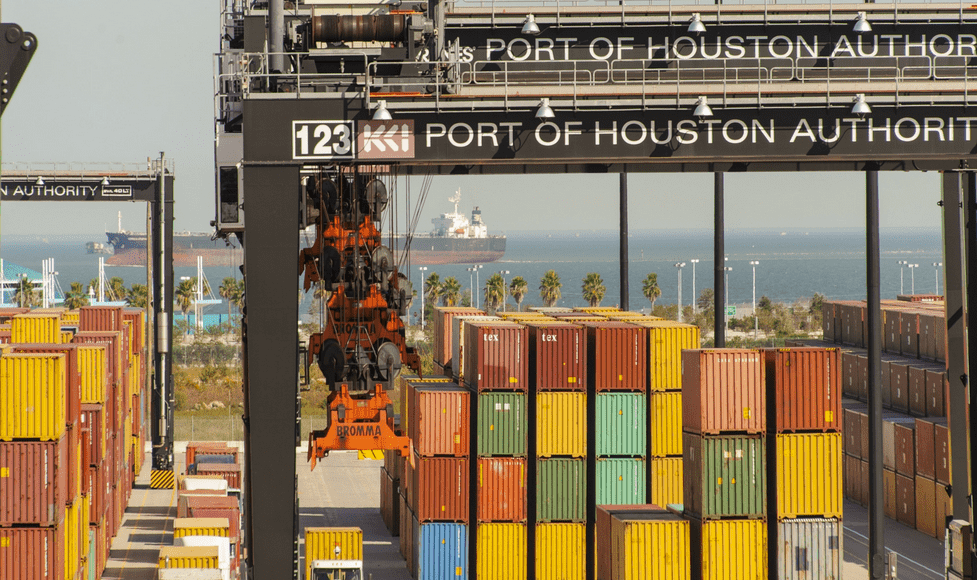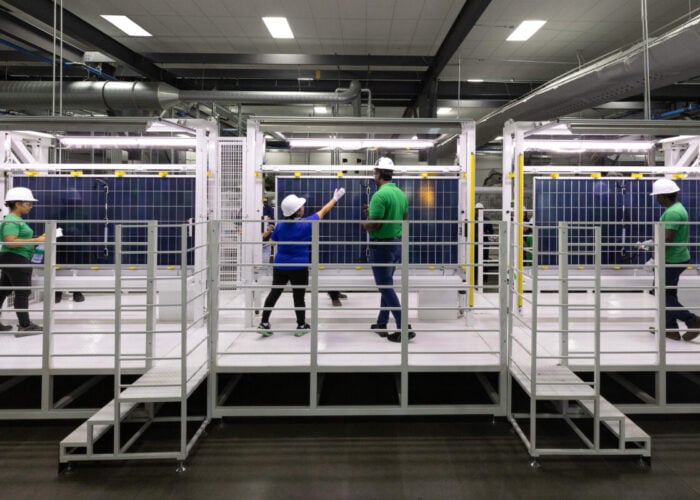
The US solar industry is facing fresh module shipment delays after new import documentation was demanded by Customs and Border Protection (CBP).
As part of the country’s new Uyghur Forced Labor Prevention Act (UFLPA) enforcement process, CBP is now requesting documentation showing the source of quartzite used in the polysilicon manufacturing process.
Try Premium for just $1
- Full premium access for the first month at only $1
- Converts to an annual rate after 30 days unless cancelled
- Cancel anytime during the trial period
Premium Benefits
- Expert industry analysis and interviews
- Digital access to PV Tech Power journal
- Exclusive event discounts
Or get the full Premium subscription right away
Or continue reading this article for free
A research note issued by Philip Shen of investment bank ROTH Capital Partners has suggested that shipments to the US from Southeast Asia could be delayed by up to 12 months as a result, with module manufacturers said to be lacking documentation of that kind.
Shen, who also noted that shipments of one leading module manufacturer have already been seized, said the enforcement “could be a major headwind near-term”.
The development follows the UFLPA coming into force on 21 June. Among the act’s key provisions is a requirement that CBP apply a “rebuttable presumption” that all goods produced or manufactured wholly or in part in China’s Xinjiang region are presumed to be made with forced labour and are prohibited from entry into the US.
Xinjiang produces about half of the world’s polysilicon, which is among the high-priority sectors for UFLPA enforcement.
CBP has previously asked about the source of quartz supply under the Hoshine withhold release order (WRO), according to Christian Roselund, a senior policy analyst at supply chain traceability firm Clean Energy Associates (CEA), who said it is unclear at this point if Customs is asking for a higher standard of documentation for quartz supply than it did in the past.
“There appear to be different levels of preparedness at different suppliers regarding documentation of quartz supply,” Roselund said. “And while detentions create uncertainty in the market, some of the largest suppliers are still shipping to the United States.”
In guidance published earlier this month, CBP said importers may consider submitting a flow chart mapping each step in the procurement and production of all materials and identify the region where each material in the production originated, such as the location of the quartzite used to make polysilicon.
The guidance said importers should be aware that imports of goods from factories that source polysilicon both from within Xinjiang and outside of Xinjiang risk being subject to detention, as it may be harder to verify that the supply chain is using only non-Xinjiang polysilicon and that the materials have not been replaced by or co-mingled with Xinjiang polysilicon at any point in the manufacturing process.
The Department of Homeland Security earlier this month published a list of entities whose products are alleged to be made with forced labour and are banned from entering the US. Among the companies that appear on the list are Hoshine Silicon and subsidiaries of polysilicon producers Daqo, East Hope and GCL.
A report published in February by the US Department of Energy said the impact of UFLPA on the solar supply chain “could be profound” over the years the act is in effect (2022 – 2029) if the Chinese government prevents solar companies from providing the documentation required by the Forced Labor Enforcement Task Force to prove their goods are compliant.
Wacker, which supplies solar-grade polysilicon from its plants in Germany and the US, “successfully supported its polysilicon customers under the previous WRO ruling and will continue to do so under the new UFLPA requirements”, said Christian Westermeier, vice president of sales, marketing and application technology at Wacker Polysilicon.
Westermeier added: “Across the globe, Wacker is upholding human rights and expects the same of partners and suppliers.”






